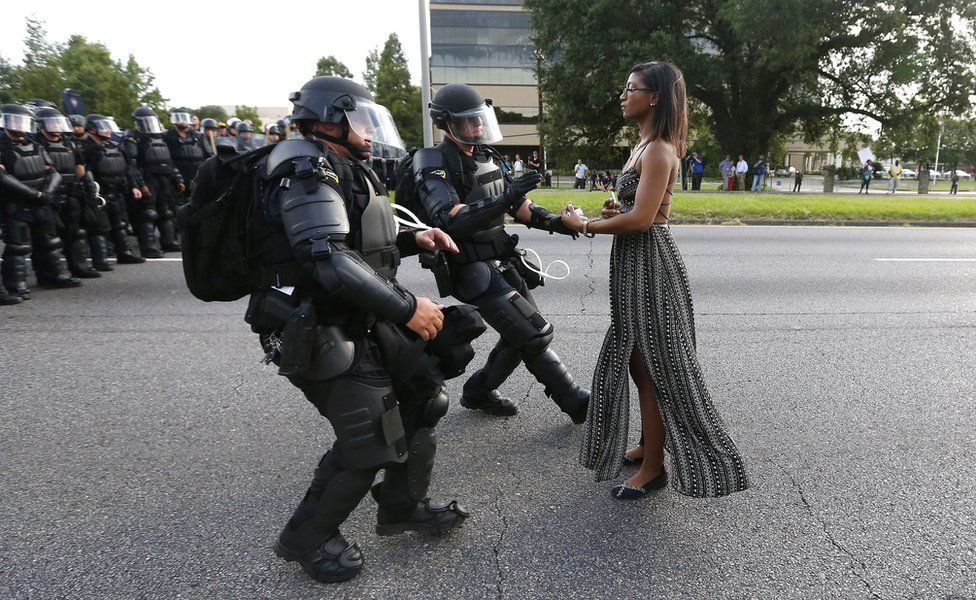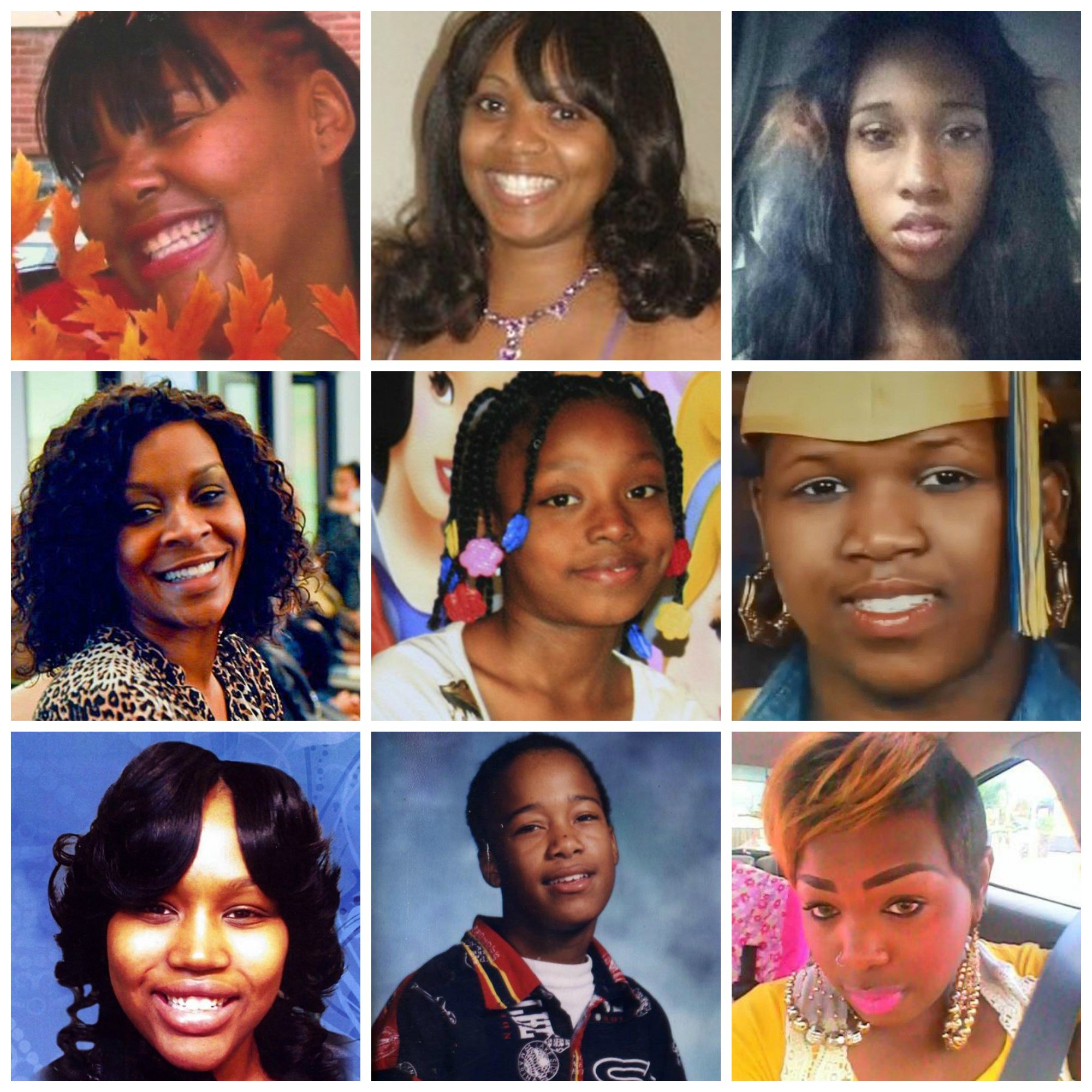The phrase “Black Lives Matter” is not only an affirmation of black life but also a social indictment for the historical abuse, neglect, and violence against black people. It is a call to action for persons to see how they value or devalue black life.
#BlackLivesMatter, was created in 2013 after a jury decided not to convict white vigilante George Zimmerman in the murder of 17-year-old Trayvon Martin. It was founded by three black women, Alicia Garza, Patrisse Khan Cullors, and Opal Tometi committed to ending anti-black racism. Black Lives Matter is a chapter-based, member-led organization whose mission is to build local power and to intervene in violence inflicted on Black communities by the state and vigilantes and it is intersectional as it seeks to center historically marginalized groups. In the wake of Trayvon’s murder, the BLM movement has forced the nation to bear witness to string of police murders: Michael Brown, Eric Garner, Alton Sterling, Philando Castile, Tamir Rice, and Jordan Davis. Yet what has been absent in the mainstream coverage is the killing and abuse of black women by police and vigilantes. The selective narrative that the media has chosen to put forth is harming the Black Lives Matter movement because it does not center black women. Not only must the movement fight for the dignity and acknowledgement of black life but they face an even bigger feat: getting the media,and the larger American body politic, to acknowledge the full humanity of black women despite many attempts to assert otherwise.
In the context of police brutality and white vigilante violence it would mean publicly shaming the media for its narrow coverage of state violence and terror against black people by only covering the murders and black men and black young boys. Another option would be to disregard the blatant racism and sexism of the media coverage and to continue on the praxis freedom. Both approaches have their limits and advantages yet the objective needs to be clear: Black Lives Matter centers black women (all black women – trans, cisgender, non-binary, queer) and must continue to show up for them the same way the movement has protested, demonstrated, and rioted for black men and black boys. In her 2016 Ted Talk critical race theorist Kimberlé Williams Crenshaw demonstrates how black women are erased from the narrative in mainstream coverage of police brutality and white vigilante violence. She asks her audience to remain standing for names they recognize. She first lists black men and children who have died at the hands of police and vigilantes. By the time she gets through the names of all the black males more than half of the room is still standing. When she has finished reciting the list of black women who have died under similar circumstances, less than three people remain standing. Crenshaw affirms that this pattern happens in almost all the spaces where she does the exercise. She was highlighting a point that Sojourner Truth argued nearly a century and a half prior – that black women suffer from both racism and sexism under white supremacy.
While the campaign Say Her Name , named in honor of the death of Sandra Bland in 2015, has sought to give visibility to black women indiscriminately killed by police we need to do more. We need to march, riot, and protest for black women too. Just last week, police in Saraland, Alabama slammed, choked, and violently undressed Chikesia Clemons after the police were called to a local Waffle House. From the video of Clemons’ arrest, it is clear that officers threaten to break her arm, choke her, and undress her in an effort to subdue her. Luckily, Clemons’ is alive and can tell her story.Those who fall victim to police chokeholds cannot. However, as the Saraland police department continues to justify the officers’ behavior during the arrest, I cannot help but question why aren’t we marching, screaming, and protesting for this black woman. Despite its intersectional approach,its radical leadership, and decentralized network of local chapters, Black Lives Matter or rather the folks that believe that black lives matter are influenced by the wider media coverage of the killing of black men and children. This is the key challenge for the Black Lives Matter movement: how much and how in depth the media covers anti-black violence propels the level of response and action of those that affirm the full humanity and dignity of black life.
What I offer is this: we must affirm all black lives but in this movement, we must reject the media’s attempt to create narratives that imply that anti-black violence will shift when we reform single-acting white police officers and vigilantes or the black man or young boy who may or may not been committing a crime. The only solution I see is to reject mainstream media and reserve spaces for radical actions that focus solely on black women. Black women are not only the creators of the movement. They are the mothers and wives of black men and children killed who often times are left to raise families by themselves. They are the women are shot while walking home from parties. They are the women who suffer emotionally and mentally because of the pervasive racist American culture and are killed because of it.

The truth of the matter is, when black women are free from white supremacy and its death sentence all black people will get free. We cannot afford to allow hyper masculine heteronormative discourse swallow whole this movement. The next steps we need to figure out are how do we manipulate the media into covering the stories we need it to or do we say to hell with the media and radically shift our work and get our local chapter network to create and push forth agendas that center black women (cisgender, trans, non-binary) that optically reflects what we, meaning those in the movement already believe.
For further reading:
Patrisse Khan-Cullors,, Asha Bandele, and Angela Y. Davis. When They Call You a Terrorist: A Black Lives Matter Memoir. St. Martin’s Press, 2018.
Keeanga-Yamahtta Taylor, From #BlackLivesMatter to Black Liberation. Haymarket Books, 2016.
